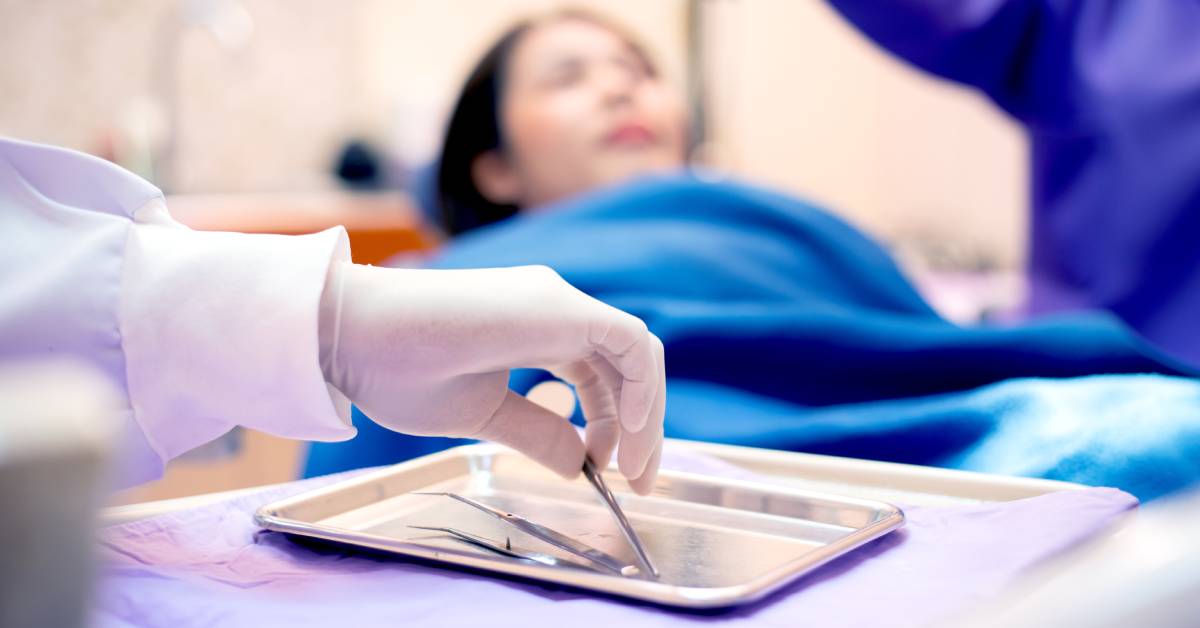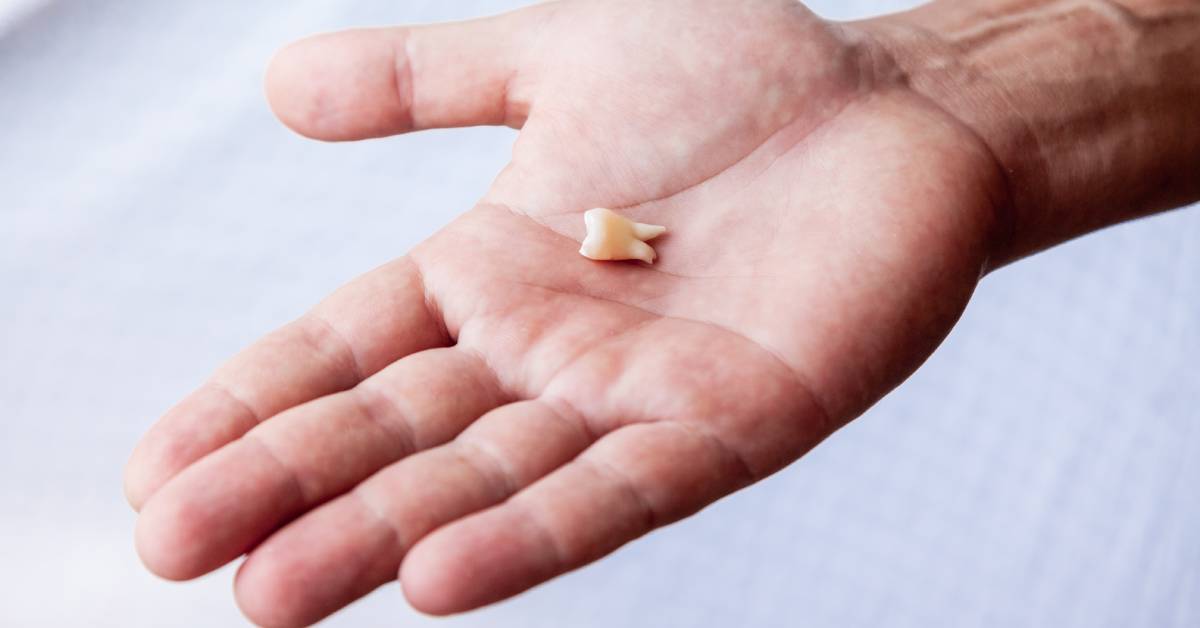
A dental emergency can leave you with substantial discomfort in your mouth and fears about what to do next. Knowing how to respond to these emergencies can help you feel less stress and pain. We’re here to cover what to do in case of a dental emergency so that you can respond properly during these unexpected situations.
Remember To Stay Calm
Maintaining a calm demeanor during a dental emergency may be difficult, but it is not impossible. Your panic can cloud your judgment, leading you to make decisions that may worsen the situation.
Instead, take a moment to breathe deeply so that you can assess the problem more clearly. This clarity helps you understand what you’re dealing with and the severity of the issue. With this mindset, you can make informed decisions about the next steps to take.
Reach Out to Your Dentist
One of the most important things to do in case of a dental emergency is to immediately contact your dentist and explain the situation in detail. Describe what happened, symptoms, duration, and any actions you’ve taken so far. This information enables them to assess the urgency of the situation and prioritize next steps.
A professional evaluation ensures accurate diagnosis and appropriate treatment planning. Dental offices often reserve emergency slots for such situations, allowing you to receive timely care. Your dentist’s guidance can also provide you with peace of mind while ensuring the best possible outcome.
Steps To Take During Specific Emergencies

After you have spoken to your dentist, they may advise you on actions you can take until you can see them. Read below to learn about steps you can take in several of these emergencies.
A Toothache
Toothaches can vary in severity, from mild discomfort to throbbing pain. They often arise from cavities, infections, or gum disease. Try rinsing with warm water or using a water flosser to dislodge any debris irritating your nerves or gums.
You can also carefully floss around the affected tooth to check for trapped food particles. You may also want to take over-the-counter pain medication (following the manufacturer’s instructions) or an oral numbing gel (such as Orajel) to experience temporary relief. Do not place aspirin on your gums, as it may cause chemical burns.
Another technique is to place a cold compress on your cheek to help with swelling. This can provide temporary relief while you arrange a dental appointment.
A Knocked-Out Tooth

When you experience a knocked-out tooth, it is important to act quickly. Pick up the tooth by the crown, and do your best to avoid touching the roots. If you find that it has dirt on it, rinse it gently with water. Do not scrub the tooth, as this will remove important cells. If you can, put your tooth back into its socket and hold it in place by gently biting down. If reinsertion isn’t feasible, put it in milk so that it stays properly hydrated until the dentist is able to re-insert it.
Call your dentist immediately to alert them of the situation, even if it is after work hours or on the weekend. Time is the biggest key that will give your tooth the best chance at reintegrating. You have better odds of saving the tooth if you can see the dentist within an hour of the incident.
A Chipped or Broken Tooth
People often chip or break their teeth when they bite down on hard objects or experience trauma. When this occurs, rinse your mouth with warm water to clean the area. If possible, save any pieces of the tooth.
You should also apply gauze to the bleeding area of your mouth until it stops. Once again, you can apply a cold compress—or even an ice pack—to your cheek to reduce swelling and discomfort, as well as take over-the-counter pain medications if necessary (following manufacturer’s instructions).
You should also eat soft foods and avoid chewing on the affected area until you consult your dentist. Timely intervention prevents further damage and discomfort.
It is important to visit your dentist as soon as possible after breaking a tooth in case the nerve is exposed. By visiting your dentist, they will test the area to assess for nerve damage or other types of damage that may not be visible to the naked eye. In some cases, the affected teeth may need to be splinted. This is similar to wearing a brace after spraining a wrist or ankle and is a temporary measure to stabilize the affected teeth while they heal. Your dentist will be able to tell you what the best treatment is the maximize your chances of saving the tooth and minimizing complications.
A Lost Filling or Crown
When your tooth loses a filling or crown, it leaves it exposed and can make it sensitive to temperature, pressure, and sweets.
Schedule a dental appointment in either case, as prolonged exposure to the mouth can lead to further decay or damage. Your dentist will evaluate the tooth and decide whether to replace the filling, recement the crown, make a new crown, or extract the tooth if it cannot be saved. Temporary adhesives do replace professional care.
Damage to Soft Tissue
Injuries to soft tissues like your lips, tongue, or inside your cheeks can occur from bites, falls, or accidents. Begin by gently rinsing your mouth with a mild saltwater solution to cleanse the wound and reduce bacteria.
Afterward, hold clean gauze to the affected area to stop any bleeding. This is once again another situation where you can use a cold compress. Monitor the wound for signs of an infection and make an appointment for dental evaluation as soon as possible.
Consider the Hospital if your Dentist is Unavailable
If you cannot reach your dentist and need care immediately, you can visit your local hospital.
The professionals at these facilities can also address complex issues effectively, such as managing dental infections or damage to the lips, cheeks, etc. Although emergency rooms typically lack dental specialists and specific dental equipment, they can provide temporary care to hold you over until you can see your dentist.
Have a Follow-Up Session With Your Dentist
After resolving the immediate emergency, schedule a follow-up appointment with your dentist. This visit serves as an opportunity to assess healing progress and address any lingering concerns.
Regular dental check-ups are crucial for assessing your dental health and are the best way to help prevent emergency situations. Dentists can spot potential problems and address them before they worsen into an emergency situation. Review oral hygiene practices and habits with the dental team during your check-ups to ensure you are adequately caring for your teeth. This will significantly reduce your risk of experiencing a dental emergency.
Now that you know these steps, you are better prepared to preserve your oral health and experience a swift recovery if you experience an emergency. You can safeguard your smile and well-being.
If you are searching for a dentist office that can provide emergency care, contact Pinnacle Dental Associates immediately. Our skilled team will make time to resolve your issue and help your mouth feel comfortable again.
